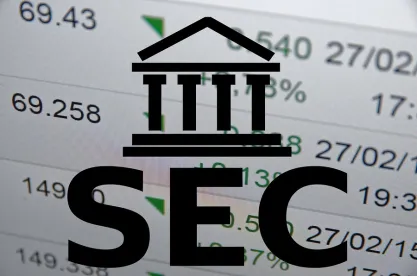The U.S. Securities and Exchange Commission (the “SEC” or the “Commission”) held its annual SEC Speaks conference via Webex on October 12 and 13, 2021. The conference featured remarks from the Chair and several commissioners, discussions regarding current enforcement initiatives and enforcement priorities for the upcoming year and an update on litigation, judicial and legislative developments.
Highlights from this year’s conference included substantive remarks from new Commission leaders, including Chair Gary Gensler and Director of the Division of Enforcement Gurbir S. Grewal, and discussions regarding modifications to the Wells process, the potential for requiring admission of liability as a settlement term in certain circumstances, the impact of the National Defense Authorization Act on the limitations period for disgorgement claims and various other developments in Commission-related litigation.
Chair’s Speech and Commissioners’ Remarks
Chair Gensler
Chair Gary Gensler focused his opening remarks on the use of digital analytics in finance. He stated that predictive data analytics and artificial intelligence are emerging as an essential piece of finance, being used in trading, asset management and risk management. He expressed both optimism and concern when noting that modern digital financial platforms, including trading platforms and robo-advisers, use automated algorithms to market and recommend different financial products to consumers. On the optimistic side, he stated that he believed that the transformation we are experiencing will likely be as big as the Internet transformation in the 1990s, and that increased access to markets and choices will benefit investors. Chair Gensler also expressed concern with financial platforms’ new capabilities to tailor products to individual investors using digital engagement practices (“DEPs”), which use data for predictive analytics, differential marketing, pricing and behavioral prompts. Chair Gensler focused his concern on three main areas: conflicts of interest, bias and systemic risk.
Regarding potential conflicts of interest, Chair Gensler first acknowledged the inherent conflict between optimizing for investor returns and optimizing for a platform’s revenue. Specifically, he recognized that a digital financial platform’s specific duties, including fiduciary duties, a duty of care and loyalty, best execution and best interest, may conflict with a platform optimizing for its own revenue. As examples, he explained that a robo-adviser may steer investors to higher-fee or more complex products, even if those products may not be in an investor’s best interest. As another example, he noted that a brokerage app might use DEPs to encourage more trading because the brokerage generates more revenue when there are more trades. To this end, Chair Gensler noted that the SEC is aware of the “gamification” of some DEPs, also highlighting that the modern features of DEPs include marketing practices, pricing and behavioral prompts, all of which present the potential for a conflict of interest between optimizing for the investor and optimizing for a platform’s profit. Chair Gensler stated that some conflict of interest issues may be addressed by the SEC’s existing rules or potential updates to SEC rules. SEC staff (the “Staff”) is looking at public feedback and will make recommendations for the Commission’s consideration. In particular, Chair Gensler also noted that the commission is separately looking at the incentives behind some of the conflicts of interest. He specifically mentioned payment for order flow as an incentive being examined.
Regarding bias, Chair Gensler stated that it is important for all individuals, regardless of race, color, religion, sex, age, disability, or any other protected class, to receive fair and open access to financial markets and prices. He briefly explained that historically there has been bias in finance, including in the consumer credit space. With the new demand for endless data which feeds algorithms that affect consumer pricing and behavioral prompts, instances of bias on the basis of protected class presents a potential problem to which the SEC will be paying attention.
Chair Gensler acknowledged the systemic risk presented by digital analytics and finance. He illustrated the potential for systemic risk by pointing to the 2008 financial crisis, dot-com bubble, and savings and loan crisis of the 1980s, all of which were underscored by interconnectedness and herding into certain datasets or investments. He stated that digital analytics, including deep learning, are increasingly complex and nonlinear, which presents a new form of interconnectedness and herding that may lead to financial fragility in ways not yet contemplated.
Commissioner Roisman
Commissioner Elad Roisman’s remarks emphasized the importance of preserving and expanding opportunities for businesses to raise capital. Despite these unprecedented times, he stated that the SEC’s tripartite mission remains the cornerstone for every decision. Specifically, the SEC focuses on (1) protecting investors, (2) ensuring there are fair, orderly and efficient markets and (3) facilitating capital formation opportunities.
Commissioner Roisman indicated that a successful economy must be able to adapt to new information and changing market conditions. He noted that the SEC has pushed back on the notion that regulations are easy to tighten, but can never be loosened. After conducting outreach, reviewing regulations and consulting with both issuers and investors, the SEC revised many regulations over the last year. For example, Commissioner Roisman discussed the expanded definition for smaller reporting companies and the expanded number of issuers who qualify as nonaccelerated filers. He also noted that the SEC expanded a company’s ability to use equity as compensation for workers by raising the cap on securities issued under Rule 701 from $5 million to $10 million.
Additionally, Commissioner Roisman stated that the SEC refined existing disclosures to benefit investors without adding unnecessary expenses for businesses. He noted that both the Disclosure Update and Simplification Rule and the amendments to the FAST Act reflect the SEC’s desire to adapt to changing market conditions. The SEC also continues to actively seek public comment on a variety of issues. For example, the Commission sought public comments and suggestions before adopting the new expanded definition for an “accredited investor.” Commissioner Roisman stated that regulations should allow investors and businesses to work together and provide a stable framework within which to collaborate.
Furthermore, Commissioner Roisman recognized the significant impact of the Covid-19 pandemic. He explained that companies had to rapidly raise and reallocate capital in order to meet the evolving demands of the American people. For example, U.S. food delivery sales more than doubled, which allowed restaurants to remain open and drivers to remain employed. In addition, telehealth usage was nearly 40 times higher than prepandemic levels. He stated that these examples are a testament to the resilience of the U.S. economy.
Nevertheless, Commissioner Roisman acknowledged that too many businesses were not able to overcome financial difficulties as a result of the pandemic. A Federal Reserve study estimated that the closure of businesses exceeded historical norms by 200,000. Moreover, small businesses and those owned by underrepresented groups were especially hard hit by the absence of strong capital markets. Commissioner Roisman stated that the SEC’s Small Business Capital Formation Advisory Committee held several discussions that focused on the difficulties facing underrepresented founders. He believes that capital raising opportunities need to be more broadly accessible in the future and any obstacle to capital formation will only slow economic recoveries and push workers out of the workforce.
Commissioner Roisman concluded his remarks by describing the path forward for the SEC. He noted that the SEC will need to learn from the prior months of the pandemic and be proactive during times of uncertainty. The SEC should find ways to allow the market to allocate capital as more information becomes accessible. Regulators must continue to respond to the needs of the market and not rely upon outdated models that stifle innovation. Overall, Commissioner Roisman stated that he is proud that the SEC has revisited and revised its own regulations to help facilitate a stronger, more resilient and more growth-friendly market.
Commissioner Lee
Commissioner Allison Herren Lee used her remarks to advocate for the Commission to take action against what she described as the lack of transparency in capital markets. During her statements, Commissioner Lee stated that “the single most significant development in securities markets” in recent years has been “the explosive growth of private markets.” She noted that in each year over the last decade, more capital has been raised in private markets than in public markets and as a result, an increasing portion of the equities markets and the economy has “gone dark” or become nontransparent to investors, policymakers and the public.
Commissioner Lee first described the importance of private markets and the increasing influence they have over the economy at the local, state and national levels. She noted that private businesses make significant contributions to innovation, create jobs and new services, impact supply chains and have altered various industries. Given the significant influence of private markets, Commissioner Lee highlighted the importance of increasing transparency.
Commissioner Lee stated that there is little information publicly available about the activities of private businesses because they are not required to file periodic reports, make certain disclosures or obtain audited financial statements as is required for public companies. Commissioner Lee noted that while certain large investors may have some ability to obtain disclosures, information is often not widely shared beyond members of the board of directors of private companies. She stated that other stakeholders—such as employees who hold equity in private companies or investors accessing private markets through institutional investors—are exposed to significant risks associated with private markets without having access to the information necessary to make financial decisions.
Commissioner Lee noted that Congress has previously acted to address opacity in capital markets. She described how a lack of transparency and misallocations of capital led Congress to create federal securities laws in the 1930s and 1960s, which established periodic reporting requirements for certain issuers. Accordingly, Commissioner Lee urged the Commission to once again take action to restore transparency to the markets. Specifically, Commissioner Lee advocated for the Commission to reexamine how issuers are permitted to count shareholders of record under Section 12(g) of the Exchange Act, which establishes the threshold for when an issuer is required to register with the Commission and become subject to its reporting requirements. She concluded that doing so is one avenue for addressing policy concerns related to determining public company status and consequently, increasing transparency in capital markets.
Commissioner Crenshaw
Commissioner Caroline A. Crenshaw’s remarks centered on why SEC regulation of digital asset markets, such as Bitcoin, will ultimately strengthen such markets. Specifically, Commissioner Crenshaw sought to send a message to developers of digital asset markets: to move the market forward, there must be a meaningful exchange of ideas between innovators and regulators.
To support her message, Commissioner Crenshaw emphasized that—similar to traditional markets—regulating digital markets will enhance investor confidence and, in turn, stimulate market growth. As a result, she posited that a well-regulated digital asset market will enjoy greater network effects. By contrast, she pointed out that a lack of regulation has caused digital asset markets to suffer from unstable investor confidence, which has depressed the digital asset markets for years.
Although the SEC has jurisdiction to regulate digital assets, Commissioner Crenshaw further recognized that merely applying the regulatory framework used for traditional markets would be unsustainable. Indeed, she pointed out that digital asset market evolution is rapid, with many new crypto coins entering the field overnight, and that many digital asset developers act as though they are not subject to regulatory oversight. Commissioner Crenshaw emphasized that, in order to reconcile the existing regulatory regime with these rapidly evolving products, both developers and regulators must work together to learn from each other. She challenged firms utilizing digital assets to take the lead and strive to be compliant with current regulations while also communicating the challenges of compliance. Such coordination, she concluded, is the key to the long-term success of these new markets.
Division of Enforcement
The conference also included a panel featuring members of the Division of Enforcement (the “Division”). This panel commenced with a substantive statement from Director Grewal and then briefly touched on priorities and highlights from across a wide range of enforcement areas.
Statement of Director Grewal
Gurbir S. Grewal, Director of the Division of Enforcement, began the panel by discussing his concerns about the decline of public trust in the financial markets and his thoughts on what the SEC can do to restore investor trust and confidence. He noted that investors will not invest their hard-earned money when they do not have sufficient confidence in the system, which hurts all market participants that are playing by the rules, as well as the economy as a whole. Director Grewal attributed part of the lapse in confidence to the public perception that large business, gatekeepers and others repeatedly break the rules and are held to a different standard by regulators. Director Grewal noted that the Staff is committed to enhancing investor trust, and he stated that the SEC brought more stand-alone enforcement actions in FY 2021 than the prior year, including cases involving auditor misconduct, insider trading, bribery schemes and misleading claims surrounding SPAC transactions.
Director Grewal focused his remarks on (1) corporate responsibility, (2) gatekeeper accountability and (3) crafting appropriate remedies. Director Grewal first discussed the importance of corporations following the laws and SEC rules designed to ensure a level playing field, noting that too often corporations fail to implement sufficient controls or procedures necessary to ensure compliance. He stated that in some situations, firms are “practically inviting fraud” and misconduct or actively covering it up. The SEC is focused on enforcing laws and rules concerning required disclosures, misuse of nonpublic information, violation of recordkeeping obligations and obfuscation of evidence from the SEC or other agencies. He warned that prohibitions against spoliation of evidence are not just “check the box” exercises for compliance departments and he stated that the SEC will seek consequences for noncompliance with document preservation obligations.
Second, Director Grewal also emphasized the role of gatekeepers in restoring public trust and ensuring companies play by the rules. He cautioned that “encouraging your clients to play in the grey areas or walk right up to the line creates significant risk” and leads to broken rules. He stated that such behavior undermines public faith in institutions that “appear to be trying to get away with as much as they can” even if rules are not broken. As a result, he stated that the Division will continue to focus on gatekeepers, citing recent cases brought against an attorney involved in the unregistered sale of securities and an accountant for failing to register his firm with the Public Company Accounting Oversight Board.
Third, Director Grewal focused on the deterrent impact of appropriate remedies, stating that registrants should expect to see the Division “recommend aggressive use of [such] prophylactic tools” to hold wrongdoers accountable. He stated that “few things rival the magnitude of wrongdoers admitting that they broke the law” and warned that the Division will be requiring admissions in cases where heightened accountability and acceptance of responsibility are in the public interest. Director Grewal noted that admissions serve to influence other market participants to eliminate and self-report misconduct. In addition, he discussed officer and director bars as another powerful remedy, stating that there is no requirement that an individual be an officer or director of a public company, or even a public company employee at all, for such a bar to be appropriate, so long as the Division believes the individual is likely to have an opportunity to become an officer or director of a public company in the future. Director Grewal also highlighted conduct-based injunctions, such as restrictions on stock trading and participating in securities offerings, noting a recent conduct-based injunction that restricted the ability of an attorney to prepare opinion letters in the future. In the context of settlements, Director Grewal noted the SEC strongly considers the use of undertakings that are tailored to address underlying violations and affect future compliance, such as requiring the settling party to hire an independent compliance consultant. Finally, he noted that firms who have repeatedly violated securities laws or SEC rules should expect the remedial relief sought to reflect such recidivist status.
Following these remarks, Director Grewal emphasized the importance of trusting and empowering the Staff and related adjustments to certain substantive decision-making processes around the Division. Director Grewal discussed ways to make the Wells process more streamlined and efficient. He noted that, while certain cases present novel legal or factual questions and may call for a Wells meeting with senior Division staff, many are more routine and, accordingly, should be handled by the Associate Director or Unit Chief, along with appropriate staff. He noted that he and Deputy Director Sanjay Wadhwa will still review Wells submissions and provide them to the Commission in connection with any recommendations. However, he noted that a meeting should not be expected in every case.
Wells Process
Deputy Director of the Division of Enforcement Sanjay Wadhwa expanded on Director Grewal’s discussion of the Wells process, noting that pre-Wells whitepaper submissions have gone beyond their intended purpose of addressing significant disagreements regarding facts, law or programmatic interests of the Division, and they instead create inefficiencies, are often duplicative of the content of later Wells submissions and have become a tool by which investigated individuals and entities seek to delay the issuance of Wells notices. The Division will defer to its frontline staff in deciding whether to accept white papers going forward, or whether to simply issue a Wells notice. With respect to Wells meetings, Mr. Wadhwa noted that if the Division grants such a meeting, it should take place within two weeks of the date of the corresponding Wells submission. Counsel for an individual or entity providing a Wells submission will be expected to agree to a Wells meeting date at the time the Staff is notified that such a submission is forthcoming. If a Wells meeting is granted, counsel should be prepared to discuss not only the SEC’s litigation risk, but also the evidence harmful to their client, and should expect a vigorous debate on the relevant facts and legal issues.
Jonathan H. Hecht, Acting Co-Chief Counsel, stated that the Division has the discretion to reject Wells submissions or white papers submitted by counsel if (1) they violate the page limit guidelines or were submitted after the deadline, (2) they seek to limit admissibility under Federal Rule of Evidence 408 or limit the SEC’s use of the submission for any purpose described in Form 1662 or (3) if a settlement offer is included in a Wells response. If the main focus of a submission is settlement, the SEC can accept it as a settlement offer and will not treat it as a Wells submission. Mr. Hecht noted that these bases for rejecting a Wells submission should not come as a surprise, as they are contained in the SEC’s Enforcement Manual.
Cooperation Credit
Deputy Director Wadhwa also sought to clarify the Division’s position on cooperation credit. He noted that market participants’ cooperation, including self-reporting, benefits everyone. He reiterated the view that mere absence of obstruction is not cooperation, nor is compliance with subpoena-based obligations to produce documents or witnesses. Rather, the Staff will look to whether the behavior for which cooperation credit is sought substantially advanced the quality of the Staff’s investigation and whether it preserved the Staff’s resources. He also noted that the Division’s frontline staff will have a meaningful voice in whether certain behavior warrants cooperation credit.
Settlement Admissions
Deputy Director Wadhwa noted that the SEC will begin requiring admissions as part of the settlement of certain cases. While he acknowledged that the “neither admit nor deny” approach allows the SEC to use resources more efficiently by avoiding the delays and expenses associated with litigation, he stated that admissions are an important tool. Settlement admissions will be sought in circumstances including, but not limited to, cases of egregious misconduct where markets or a large number of investors were harmed or placed at significant risk, or where obstruction of the SEC’s enforcement process occurred.
Covid-Related Notes
Bridget Fitzpatrick, Chief Litigation Counsel, noted that the SEC has now conducted fully remote trials, fully in-person trials and hybrid trials (in which counsel and some witnesses are in-person, while other witnesses appear remotely) during the pandemic. Similarly, she noted that the Staff has taken testimony under the same circumstances (fully remote, fully in-person and hybrid). While the Staff will be accommodating about preferences as to whether testimony will proceed in-person or remotely, the Staff will also rely on favorable case law to enforce subpoenas where persons cite to Covid-related safety concerns merely to delay or evade testimony.
Use of Expert Testimony and Statistical Evidence at Trial
Ms. Fitzpatrick highlighted the Staff’s use of expert testimony and statistical evidence in a November 2020 bench trial in the United States District Court for the Western District of Louisiana. In the case she referenced—in which the SEC prevailed with respect to cherry-picking allegations—the judge’s opinion indicated that he found the expert testimony and statistical evidence compelling. The court noted that the empirical data had no plausible explanation other than cherry-picking and also relied on statistical analysis in finding that the defendants acted with scienter. Defendants can expect the Staff to use experts and statistics at trial in a similar manner going forward.
National Defense Authorization Act and Statutes of Limitation
Ms. Fitzpatrick and Mr. Hecht discussed the impact of the National Defense Authorization Act (“NDAA”) on the remedies available to the SEC, as well as the limitations periods for seeking certain relief. Mr. Hecht noted that the NDAA was Congress’s response to the United States Supreme Court’s rulings in Liu and Kokesh, and it codified and strengthened the Commission’s ability to seek disgorgement under the Exchange Act and the authority of district courts to require disgorgement from relief defendants. With respect to the NDAA’s impact on limitations periods, Mr. Hecht stated that the Commission’s claims for disgorgement in scienter-based cases are now governed by a 10-year limitations period, whereas disgorgement claims in non-scienter-based cases are still subject to a five-year limitations period. The extended 10-year limitations period, per Mr. Hecht, applies to any proceeding pending on or commenced on or after the date the NDAA was passed in January 2021. Because the limitations period for civil monetary penalties remains five years, the Division will likely operate on that timeframe going forward, according to Mr. Hecht. However, he noted that the 10-year period does provide the opportunity to recover more ill-gotten gains and to rely on more complete records. Ms. Fitzpatrick expressed her view that the relevant NDAA provision is expressly retroactive and that courts are applying the NDAA consistent with that view. She cited to SEC v. Ahmed, a case originating in the United States District Court for the District of Connecticut that was on appeal to the United States Court of Appeals for the Second Circuit when the NDAA was passed. The Commission sought and obtained a limited remand to the district court to determine the impact of the NDAA, and the disgorgement amount was substantially increased as a result.
Initial Coin Offerings
Kristina K. Littman, Chief, CYBER Unit, discussed recent activity relating to initial coin offerings (“ICOs”). She stated that the SEC follows a registration claims model of settlements when dealing with going concern companies, which allows such companies to continue with entrepreneurial efforts while providing necessary investor disclosures through token registration. The SEC has also entered into several recent settlements with companies that are not going concerns, which typically involve fair funds to return money to injured investors. Ms. Littman also noted the SEC’s focus on touting, which often involves celebrity endorsements, but can also be brought against entities who are offering a paid-for platform to promote ICOs.
Ms. Fitzgerald discussed litigated Section 5 actions, focusing on what she referred to as seminal cases SEC v. Telegram and SEC v. Kik in the Southern District of New York, which both discussed the standard for when a digital asset is a security. Ms. Fitzgerald criticized these and other defendants’ arguments that they did not know that the law applied under their particular circumstances, stating that the courts have soundly rejected such defenses.
Ms. Littman stated that the SEC is also looking beyond token issuers and is focused on other market intermediaries that are allowing trading in digital assets, such as unregistered exchanges and unregistered broker-dealers. Ms. Littman referenced Commissioner Crenshaw’s earlier statement that it is the responsibility of each enterprise to show that it is in compliance with all applicable laws and regulations. Ms. Littman also stated that, regardless of what labels are used by a company to describe its business, the SEC will look at the economic realities of the project to determine whether it is a securities offering subject to SEC oversight.
Cybersecurity
In addition to actively pursuing the perpetrators of cyber-related trading schemes, Ms. Littman stated that the Division’s investigations into entities that are actual or potential targets of cybersecurity incidents generally fall into two categories: (1) issuer disclosures and (2) registrant controls. With respect to issuer disclosures, the Staff has recently brought enforcement actions where, for example, senior executives who made public statements about a cybersecurity incident had not been informed that the company had previously identified and failed to remediate the vulnerability leading to the cybersecurity incident in accordance with company policy, and where disclosures regarding a cybersecurity incident were neither fulsome nor accurate. With respect to registrant controls, Ms. Littman highlighted cases brought by the Staff where written policies and procedures calling for enhanced security measures to protect customer information were too narrowly implemented and did not protect all customer information. Ms. Littman noted that enhanced cybersecurity measures must be properly implemented and not just exist in writing.
Private Funds
C. Dabney O’Riordan, Chief, Asset Management Unit, explained how her unit continues to see misconduct by advisors to private funds. She noted that the lack of transparency is inherent to the private fund space and that the SEC is focused on undisclosed conflicts of interest and valuation issues. Recent examples mentioned involve (1) side-by-side management of multiple funds where one is a proprietary fund, (2) a portfolio company that used the services of the advisor or affiliate that earns additional compensation as a result and (3) an investment that creates a conflict of interest due to the relationship (such as a familial relationship) with the investment company. Ms. O’Riordan stressed the importance of registrants instituting comprehensive policies and procedures addressing valuation and conflicts of interest. Such policies and procedures should be tailored to each business’s unique conflicts and should be broadly implemented.
Separately Managed Accounts
Ms. O’Riordan stated that the SEC will continue to police advisers to separately managed accounts regarding common conflict disclosures, including share class selection and undisclosed revenue. Additionally, the Division will target firms that fail to fulfill their duty of care obligations and properly assess whether an investment is in the best interest of their client and analyze other investment options.
Environmental, Social, and Governance Investments
Ms. O’Riordan stated that significant growth in Environmental, Social, and Governance (“ESG”) investments is another area of concern for the Division. Companies should (1) make sure they have appropriate internal structures in place to sell products and services as marketed, (2) continuously monitor investments to ensure they remain consistent with ESG promises and (3) ensure all proxies are voted in accordance with ESG mandates.
Robo-Advisers
Despite previously bringing enforcement actions in this area, the Division continues to see issues with robo-advisory firms. These issues include misleading statements regarding historical performance and conflict disclosures relating to robo-advisory firms’ incentive to recommend proprietary investments.
Whistleblower Program
Nekia Hackworth Jones, Director of the Commission’s Atlanta Regional Office, discussed the Division’s whistleblower program, which paid out over $500 million in FY 2021 alone and has resulted in over $4.8 billion in financial remedies since 2012. She noted that December 2020 amendments to the program allow the Commission to make awards, under certain circumstances, based on nonprosecution agreements or deferred-prosecution agreements entered into with the Department of Justice. This development reflects the Commission’s view that a whistleblower should not be disadvantaged by the type of action the Commission or DOJ chooses to pursue. The amendments also allow whistleblowers to submit a Form TCR for award eligibility within 30 days of finding out about the requirement to do so and provide the Commission with the ability to issue permanent bars against serial submitters of frivolous award applications.
Financial Fraud and Issuer Disclosures
Ms. Hackworth Jones noted that the Staff brought dozens of enforcement actions relating to financial fraud and issuer disclosures in FY 2021 based on the Division’s proactive, risk-based, analytic approach. She touted the EPS Initiative, which uses data analytics to identify violations relating to earnings management.
Coordination With Criminal Authorities
According to Ms. Hackwork Jones, the Staff is aware that defense counsel sometimes attempt to play the Commission and criminal authorities against one another and leverage the existence of criminal proceedings to delay the Staff’s investigation. She noted that the Staff becomes aware of these tactics due to its communication and coordination with criminal authorities. Ms. Hackworth Jones also noted that the Staff has a toolkit that is well-suited to preserve investor assets and that the Staff will use those tools to obtain injunctive relief even where there is a pending criminal investigation.
Microcap
Ms. Hackworth Jones discussed the microcap industry, noting that the Staff’s enforcement actions in this space frequently involve false or misleading marketing campaigns and manipulative trading strategies—largely at the expense of less sophisticated investors. She stated that the Division is continuing to watch this space and is actively developing strategies to identify and address microcap-related misconduct.
Judicial Developments
The conference also included a panel featuring several litigators from the Division of Enforcement. This panel addressed recent statutory and litigation developments.
Market Data Infrastructure Rules
Daniel Staroselsky, Senior Litigation Counsel, Dominick V. Freda, Assistant General Counsel, and Tracey A. Hardin, Assistant General Counsel, discussed the Commission’s efforts to implement rules requiring that security exchanges make certain market data widely available to the public for reasonable fees. Generally, the core data the exchange must disclose under this rule consists of exchange information such as price of the last exchange sale, each exchange’s current highest bid and lowest offer, and the national best bid and lowest offer. This rulemaking has triggered a lawsuit by several exchanges contending that the SEC’s market data rule is “arbitrary and capricious” and improperly redistributes proprietary market data. This litigation is currently pending in the United States Court of Appeals for the D.C. Circuit.
Fraud on the Market Theory
Jeffrey A. Berger, Senior Litigation Counsel, and Brooke Wagner, Senior Counsel, discussed the “fraud on the market” theory, which Mr. Berger explained is an indirect means of establishing reliance that private litigants are required to demonstrate when suing for fraud. He stated that this theory presumes that there is generally an efficient market which processes public information that gets factored into market prices for securities. Mr. Berger stated that the theory also presumes that an investor relies on the integrity of the market price such that if the market price is based on a public misstatement, the investor can be said to have relied on that misstatement in purchasing a security at market price. He further explained that this theory is “essential” to class actions alleging fraud, which would otherwise fail to get certified if each individual plaintiff had to demonstrate their reliance on a misstatement.
Ms. Wagner explained that the Supreme Court took a closer look at the fraud on the market theory in a putative class action case brought against a major financial institution in which the putative class alleged that the financial institution made false statements which inflated its stock until the truth was revealed, at which point the stock price dropped and caused losses to investors. In an amicus brief filed by the Commission, it argued that defendants should not be permitted to introduce evidence of the “materiality” of a misstatement at the class certification level but should only be permitted to offer evidence of the generic nature of a misstatement to rebut a putative class’s allegations with respect to the impact of an alleged misstatement on price. Mr. Berger stated that the Supreme Court ultimately followed the roadmap the Commission provided in its amicus brief in ruling that the qualitative nature of a misstatement is relevant evidence in determining price impact, which courts should examine at the class certification level.
Unauthorized Trading and Civil Penalties
Rachel M. McKenzie, Senior Litigation Counsel, and Dominick V. Freda, Assistant General Counsel, addressed the Second Circuit’s recent ruling in SEC v. Fowler, which discussed the Commission’s ability to impose disgorgement and the applicable statute of limitations. Ms. McKenzie explained that in Fowler, a financial broker pursued an “event-driven” investment strategy for his customers while knowing or recklessly disregarding the fact that such a strategy was unlikely to result in gains for his customers. Mr. Freda stated that the Commission began investigating Fowler in 2014 and that he had entered into two separate tolling agreements with the Commission. The SEC sued Fowler in federal court and a jury found against Fowler on all of the SEC’s claims, after which the district court ordered disgorgement and penalties of over $1.9 million.
Mr. Freda explained that on appeal, Fowler argued that a five-year statute of limitations barred the SEC’s claims because its claims accrued when he opened the first customer account in 2011. Fowler argued that any tolling agreements he entered were irrelevant because the applicable statute of limitations was “jurisdictional” and accordingly could not be tolled. Ms. McKenzie stated that the Second Circuit rejected this argument and found that the statute of limitations was not jurisdictional and could therefore be tolled. Accordingly, the Second Circuit upheld the imposition of disgorgement.
Insider Trading Developments
David D. Lisitza, Senior Litigation Counsel, discussed the most recent developments in insider trading law by highlighting two cases: U.S. v. Blaszczak and U.S. v. Chow. Mr. Lisitza explained that Blaszczak addressed the “tipper” theory of liability of insider trading. He noted that, under current Supreme Court precedent, insiders are liable for insider trading if they tip material nonpublic information and receive a personal benefit for providing such a tip. In Blaszczak, an employee at the Center for Medicare & Medicaid Services provided confidential information to David Blaszczak about upcoming changes to agency rules governing reimbursement rates. Blaszczak then provided this information to a hedge fund client which traded in companies who would be helped or hurt by the rule changes. Mr. Lisitza stated that, at trial, the district court instructed the jury that a personal benefit was required for liability under Section 10(b); however, no personal benefit was required for liability under a wire fraud theory. The jury ultimately acquitted the defendants on the Section 10(b) claims but not the wire fraud claims. The Second Circuit affirmed the rulings on appeal.
Mr. Lisitza also addressed Chow and highlighted its importance to the breach of fiduciary duty theory of insider liability. He explained that when a corporate “outsider” owes a duty of trust or confidence to an entity but breaches that duty by trading on material nonpublic information, that outsider is liable for insider trading. In Chow, the defendant was an executive at a firm that was acquiring another company and he signed a non-disclosure agreement during the negotiations for the acquisition. Thereafter, Chow tipped an individual regarding the impending acquisition.
After a jury convicted Chow of insider trading, Chow appealed to the Second Circuit and argued that the government failed to show that he owed a duty of confidence or trust to the company that was to be acquired. Mr. Lisitza explained that Rule 10b5-2 provides a nonexhaustive list of relationships in which a duty of trust or confidence exists, which includes a situation where a person agrees to maintain information in confidence. He stated that the Second Circuit specifically invoked Rule 10b5-2 in finding that Chow owed a duty of confidence and trust by virtue of the nondisclosure agreement he signed, and he breached that duty when tipping information about the acquisition. Mr. Lisitza lauded the ruling and its reliance on Rule 10b5-2.
Michael J. Quinn, Matthew A. Rossi, Marie E. Christiansen, Brooke E. Conner, Samuel M. Deau, Nusra Ismail, Joshua Nichols and Nicholas Vera contributed to this article.








 />i
/>i
